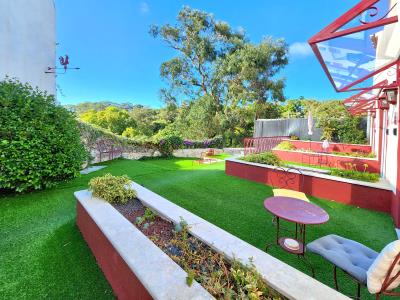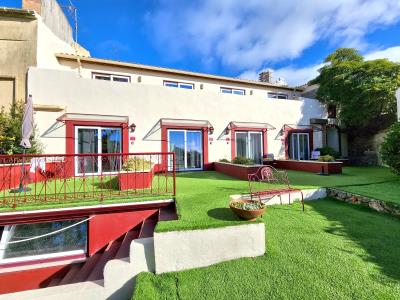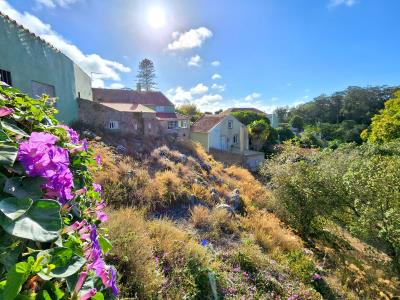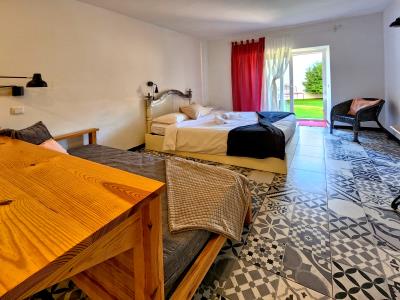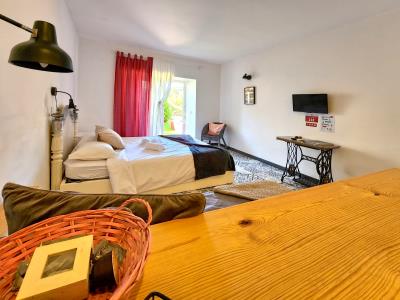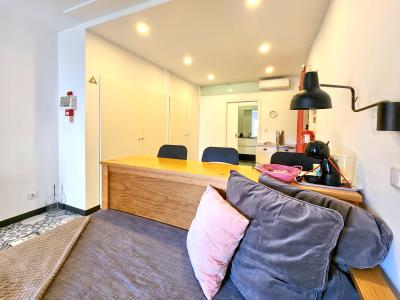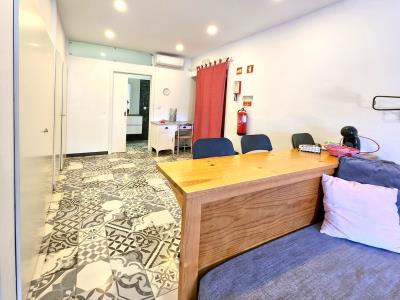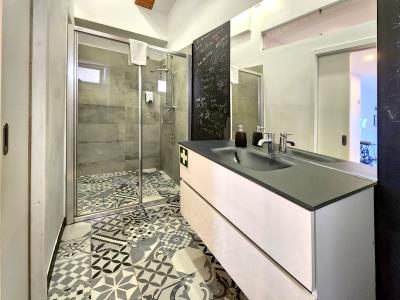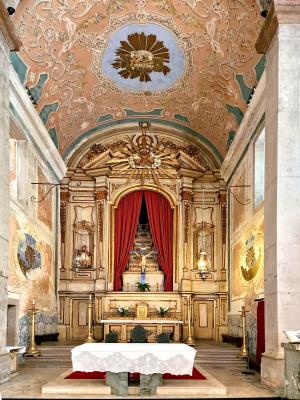Day 4 8/11/2023
Portugal - Sintra
Frank's Trip
CLICK on any image to enlarge - use mouse cursor to move enlargement it if doesn't fit area
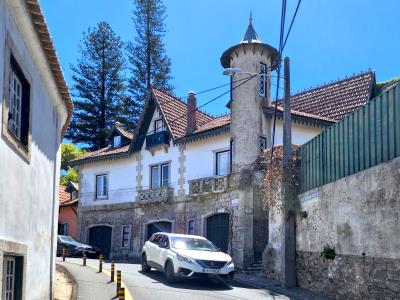
Climbing Mount Everest...
I climbed Mount Everest today! Only it was at a relatively gradual grade and much warmer temperatures. My FitBit says I walked a little over 15,000 steps today - well over 6 miles according to it. It doesn't know that the vast majority was uphill - I was too whipped to walk back so I finally saw and got a Tuk-Tuk. Mount Everest is only 29,092 feet tall - I walked over 31,600 feet. The hills here in Sintra just don't quit; there is always more uphill! It kicked this old man's butt!
Anyway, all of these are places off the beaten path of typical tourist routes. So the tour busses aren't going there. That left walking... The rest of my stops in Sintra were more "touristy" - but still lots of walking to do to see them.
 Sintra, Portugal World Heritage Site
Sintra, Portugal World Heritage Site
The town is considered a World Heritage Site. This Cultural Landscape is an exceptional mixture of natural and cultural sites within a distinct framework. Seen from a distance, it gives the impression of an essentially natural landscape that is distinct from its surroundings: a small chain of forested granite mountains rising over the hilly rural landscape. When seen from closer at hand, Sintra reveals a surprisingly rich cultural evidence spanning over several centuries of Portugal's history.
While some of the sites I visited, such as the small churches, aren't spectacular in themselves, they are a part of the core of Sintra that makes it a World Heritage Site as a city - in addition to the more striking sites that are, in themselves, World Heritage Sites.

Just an interesting house along the road
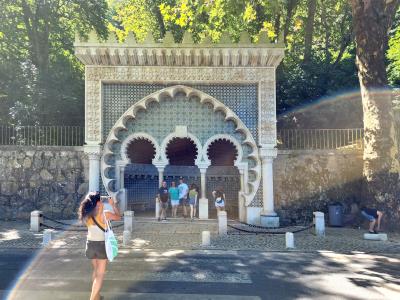

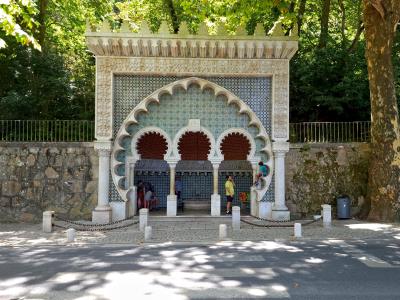

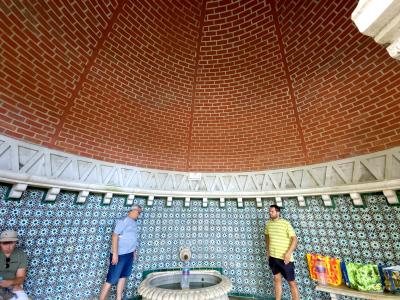
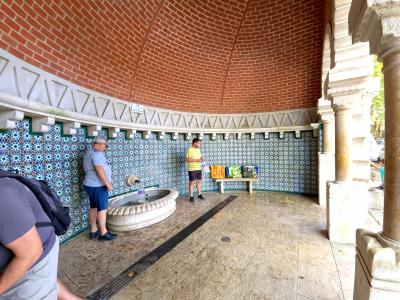
Torre do Relógio
The primitive tower must date from the 16th century. The current tower was built on the initiative of the Marquis of Pombal, after the 1755 earthquake, which caused the collapse of the previous one from the floor where the clock machinery is located. 1773 is the date inscribed on the bell facing East; 1791 is the date inscribed on the bell facing South.

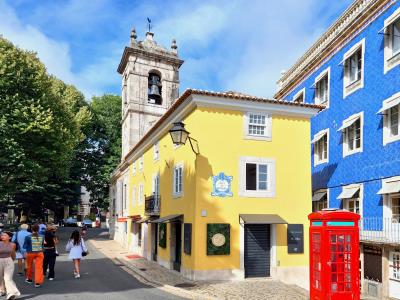

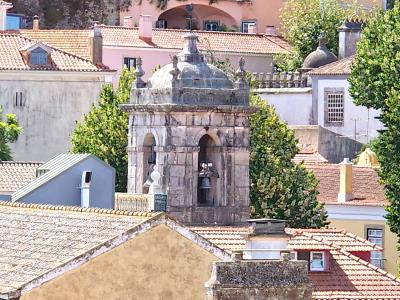
Igreja de Sao Martinho / Church of Saint Martin
In 1147, King Afonso Henriques conquered Sintra. He ordered the construction of at least four Christian churches near the newly captured palace. In 1241, mainly because of the church's proximity to the palace, the St. Martinho Church was granted the status of Cathedral.
In the devastating Lisbon earthquake of 1755. The roof collapsed. The church remained in ruins until the king, Joseph I, grew tired of seeing it on his way to the palace. He urged the prime minister, the Marquis de Pombal, to restore it.
The restored church is a single vessel building with an oversized square bell tower. The interior is a single nave with a vaulted ceiling. The ceiling is painted to give the illusion of marble and stucco designs. The arch over the altar is decorated with paintings of the Passion of Christ.
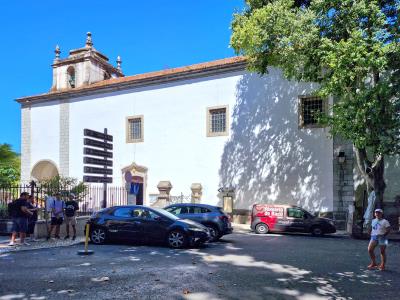
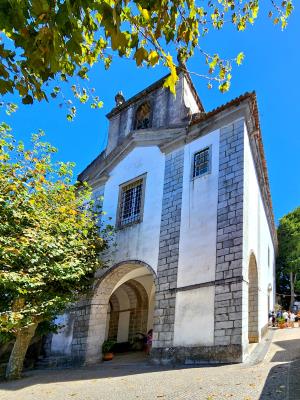


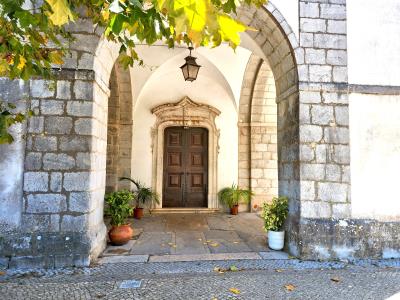
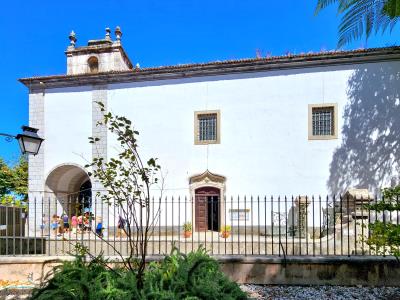
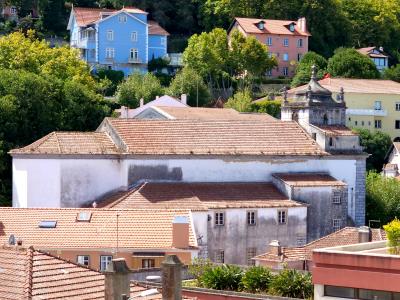
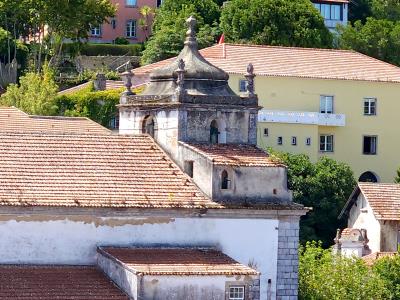


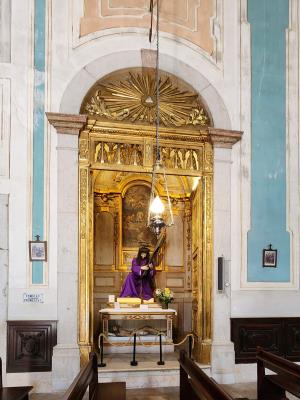


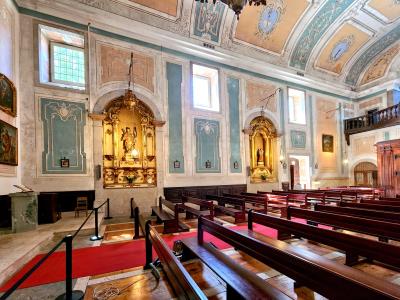


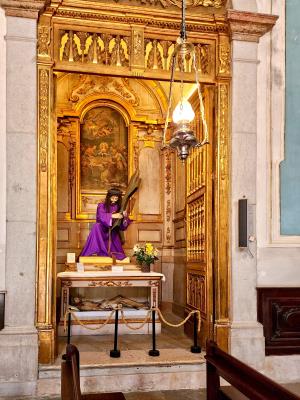
This is a jointed Christ figure used to depict different poses in the Passion of the Christ; it can be positioned as on the cross, being carried away, etc.




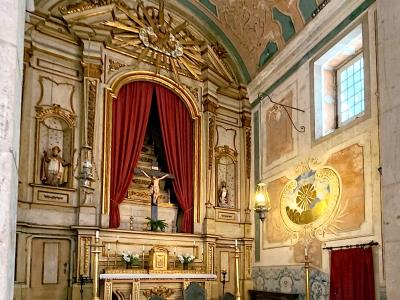
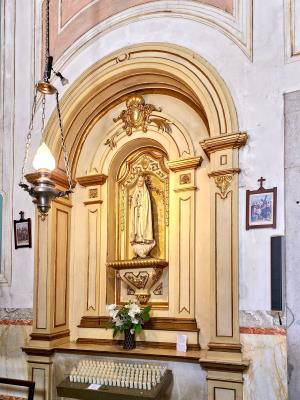
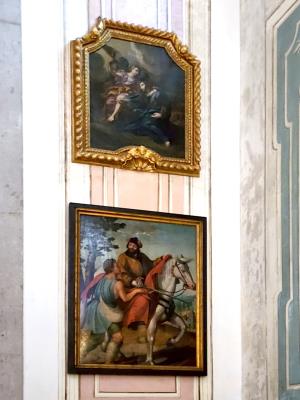
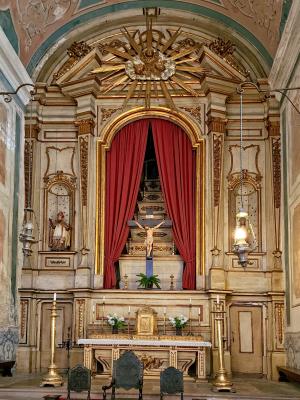

Video: Igreja de Sao Martinho
Video of interior of Saint Martin's Church in Sintra, Portugal
Click [ ] icon for full screen
Parque de Liberdade
Inaugurated in July, 1937. This is just the top level. There is a large lower park area which was closed when I was there.




Calcada de Santa Maria / Igreja de Santa Maria
It has been classified as a National Monument since 1922 and is part of the Cultural Landscape of Sintra, a World Heritage Site since 1995. The church, with three naves, represents the transition between Romanesque and Gothic of the mid-12th century. Unfortunately, closed when I visited.
Though the church was renewed after the 1755 earthquake, it still retains the bell from 1468 and other artifacts in the church date to the 15th century.
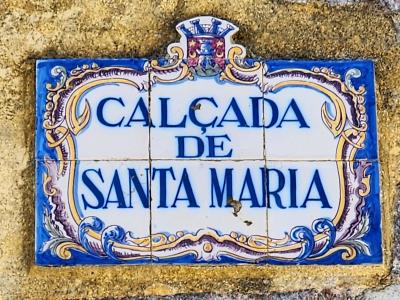


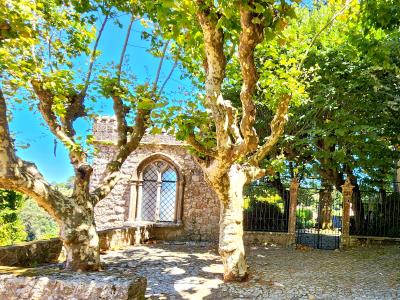

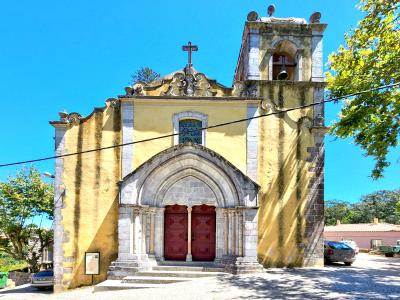

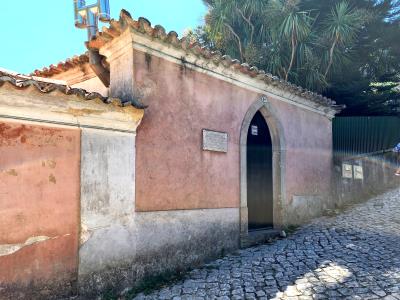

Convent of the Holy Trinity of Sintra
In 1400 King Joao I ordered the construction of the convent. Part of the convent was destroyed in the 1755 earthquake. The facade dates back to the 18th century reconstruction. Liberals expelled the religious order around 1834 and the convent was abandoned by the friars. In 1848 the convent became a temporary hospital to help deal with the cholera outbreak. The convent is now a private property and cannot be visited.

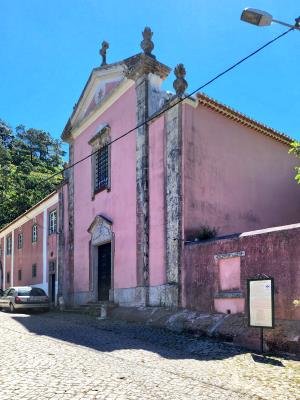

Church of Sao Pedro
Saint Peter's of Sintra got its start as one of Afonso Henriques' church building projects after the reconquest of Lisbon in 1147. It was rebuilt in the 16th century by Dom Alvaro de Castro. The church is a single vessel building. It has one nave. The interior walls are covered in blue azulejo tiles dating from the 18th century after the earthquake of 1755. Unfortunately, it was closed when I visited and I was unable to see the interior.
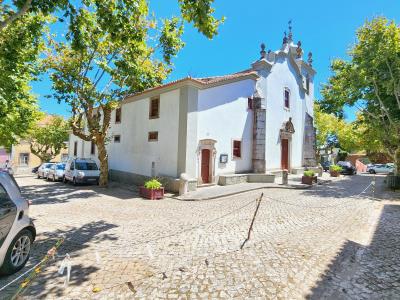




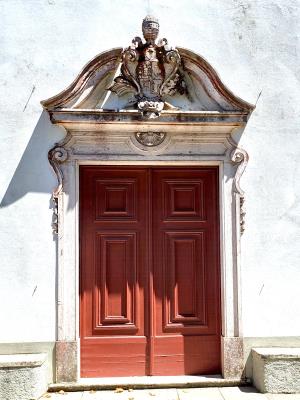
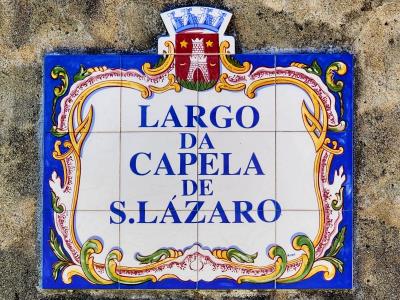
Capela de Sao Lazaro
This is a chapel in the Gafaria of São Pedro de Penaferrim - a leprosarium. Lazarus (Lazaro) is derived from the Greek expression meaning "the one whom God helped". The Biblical story of Lazarus overcoming death offers the sense that it is possible to overcome all the mishaps life brings. This is the deeper meaning behind this chapel of a leper colony. This was located within the circumscribed and protected area of the gafaria where lived those who were forbade contact with the rest of the population - living in exclusion until the end of time.
The exact date of the Chapel foundation is unknown, but it certainly predates the Middle Ages. The current chapel dates to around the 1500s when Queen Dona Leonor had it renovated and her coat of arms are on the building. It is understood that the chapel already existed in 1409 and was then "already beyond the memory of men".
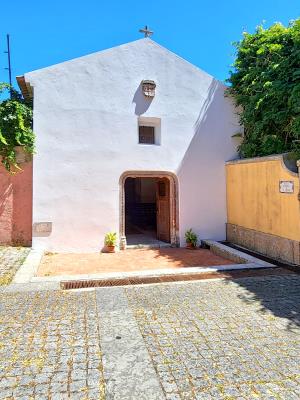
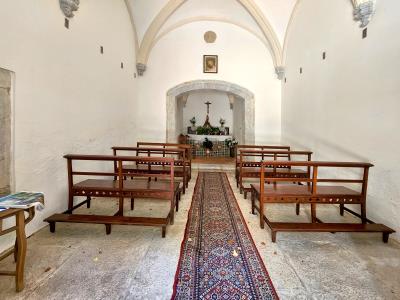
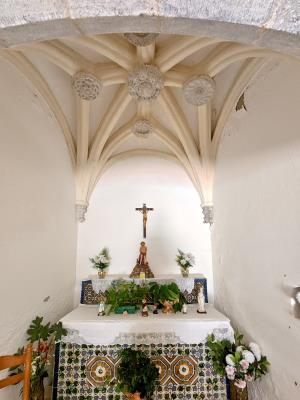


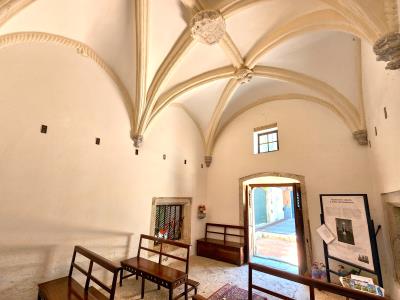
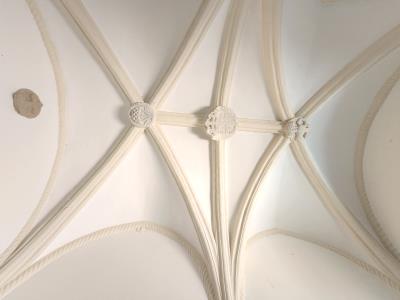
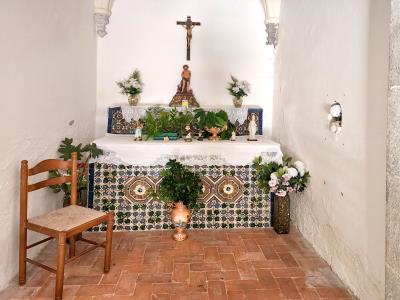

Villas de Cintra Apartment Hotel
This is the charming place where I stayed in Sintra. Unfortunately, it was at the bottom of a steep hill... didn't like that part. Everything else was great.



